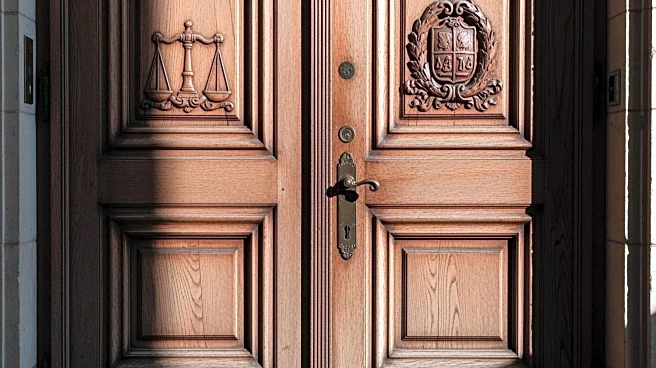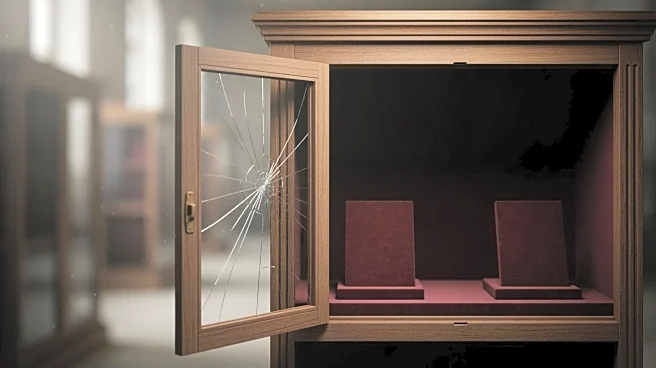What's Happening?
Nicolas Sarkozy, the former President of France, has commenced a five-year prison sentence at La Santé prison in Paris. Sarkozy, who led France from 2007 to 2012, was convicted for criminal conspiracy
related to accepting campaign funds from the late Libyan dictator Muammar Gaddafi. This marks a significant moment as Sarkozy becomes the first former French president to be incarcerated since World War II. Despite his conviction, Sarkozy maintains his innocence, stating that an 'innocent man is being locked up.' He will be held in solitary confinement for security reasons, with limited interaction with other prisoners. Sarkozy's legal team has already requested parole, aiming to secure his release as soon as possible.
Why It's Important?
Sarkozy's imprisonment is a historic event in French politics, highlighting issues of corruption and accountability at the highest levels of government. The case underscores the potential consequences of illicit campaign financing and the legal repercussions for political leaders involved in such activities. Sarkozy's conviction may influence public trust in political institutions and could impact the political landscape in France, particularly among right-wing and center-right parties. The event also serves as a reminder of the importance of transparency and integrity in political campaigns, potentially prompting reforms in campaign finance laws.
What's Next?
Sarkozy's legal team has filed for parole, which could lead to his early release if granted. The case may continue to attract public and media attention, influencing public opinion and political discourse in France. Supporters of Sarkozy have rallied outside his residence, indicating ongoing political support despite his conviction. The outcome of the parole request and any further legal developments will be closely watched by political analysts and the public.
Beyond the Headlines
Sarkozy's imprisonment raises questions about the ethical standards expected of political leaders and the long-term implications for political accountability in France. The case may prompt discussions on the need for stricter regulations and oversight in political campaign financing. Additionally, it highlights the challenges of balancing political influence with legal accountability, potentially influencing future political conduct and governance in France.








